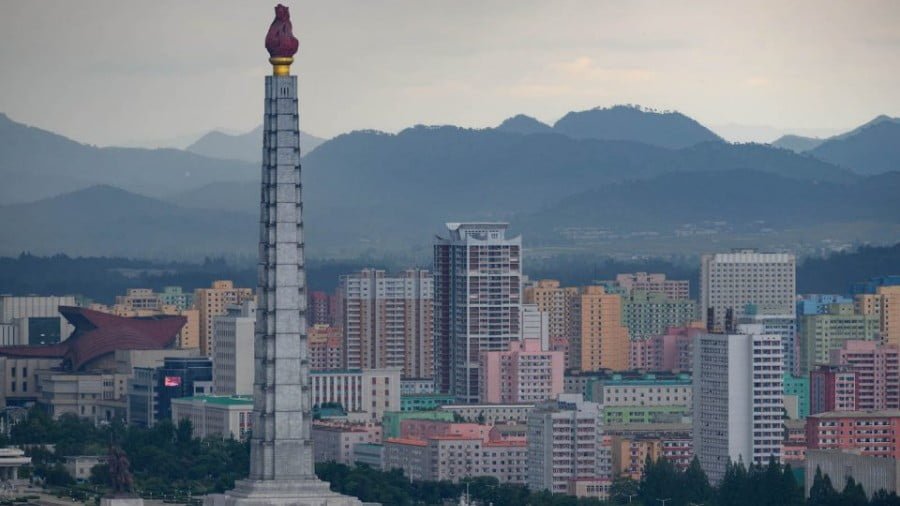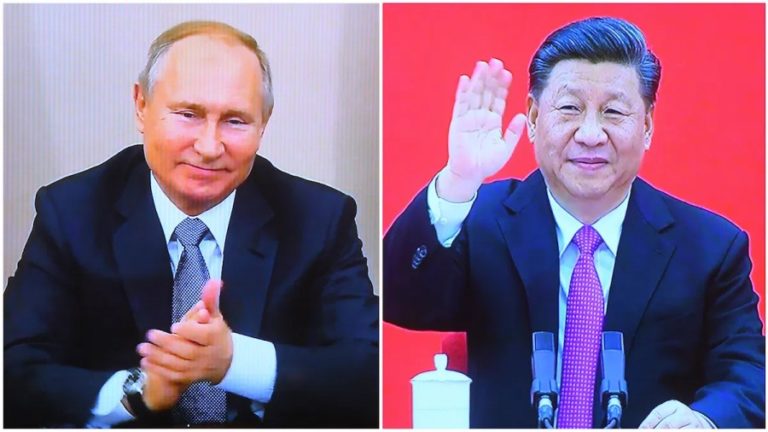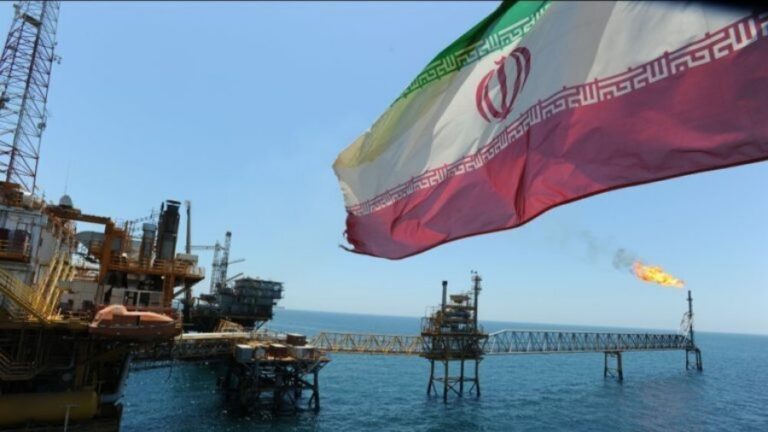Trump Holds the Clock on North Korea While Putin Plans His Moves
The argument that China is being “marginalized” by Washington while it works bilaterally with Pyongyang on the profound security issues on the Korean Peninsula has been completely discredited with the surprising news that the North Korean leader Kim Jong-un is back in China on a two-day visit that began today.
The Singapore summit between US President Donald Trump and Kim seems set to produce untold surprises in the future. Kim is indeed acting shrewdly by anchoring his dealings with Trump on his pivotal relationship with Chinese President Xi Jinping. No amount of wishful thinking can obfuscate this geopolitical reality.
But what is less visible so far has been the looming Russian presence. To add to it, the back-to-back consultations and coordination between Xi and Putin on the Korean issue is manifestly gaining an all-time high level of intensity.
Putin and Xi in close contact
Last Friday, Putin telephoned Xi to discuss amongst other issues “the settlement of the situation on the Korean peninsula.” A Xinhua report of their conversation stated that Xi underscored the importance of the two leaderships keeping in close contact and in real time, since the “world situation and hot issues are at the crux of complicated changes” and given the “firm support that our two nations have offered to each other [to] help safeguard the two countries’ sovereignties, securities and development interests, and defend the regional and global peace, stability and justice.”
Meanwhile, the backdrop of that conversation cannot be overlooked – growing tensions between China and Russia on the one hand and the US on the other. On June 15, in a scathing attack on Russia and China, US Defence Secretary James Mattis alleged that “Putin seeks to shatter NATO” and “attempts to undermine America’s moral authority”; and, that the Ming dynasty appears to be Xi Jinping’s model, “albeit in a more muscular manner, demanding other states become tribute states, kowtowing to Beijing.”
While China’s role on the Korean issue is an accepted reality, Russia’s growing profile has been audacious. The point is, Moscow is increasingly pressing for a relaxation and lifting of the UN sanctions against North Korea. The big question is whether and for how long the Russian demand will remain merely verbal before translating into some sort of practical action.
Putin takes a similar approach as the South Korean President Moon Jae-in on the need for constructive engagement of Pyongyang. In some ways, Moscow is even in a position to voice opinions that Seoul may not find it expedient to openly articulate just yet – such as, for example, deployment of the US’ THAAD missile system to South Korea.
All this makes the forthcoming three-day state visit to Russia by Moon on June 21 an engrossing event. While a formal announcement of the visit is yet to be made, Yonhap News Agency “leaked” the news in Seoul on Monday, citing an unnamed South Korean official in the presidential administration. The Yonhap report disclosed that Moon and Putin are expected to pay special attention to North Korea’s nuclear issue during the summit.
It added: “Russia has been making a significant contribution to efforts to denuclearize North Korea while it has also played a significant role in pressuring the North, considering its economic relationship with North Korea.” The news agency went on to quote the South Korean official as summing up: “Also, the visit is expected to help promote strategic cooperation between the two countries [Republic of Korea and Russia] to establish peace in Northeast Asia amid positive developments in security conditions and efforts to denuclearize the Korean Peninsula.” The delicate diplomatic pirouetting is obvious.
Moscow has since acknowledged the veracity of the news regarding Moon’s state visit on Thursday. The Russian Deputy Foreign Minister Igor Morgulov further disclosed that Putin plans to talk with Moon about projects between Russia and the two Koreas. Morgulov said Moscow expects the military confrontation level on the Korean Peninsula to reduce and therefore, cancellation of US-ROK military drills is “a step in the right direction.”
Gas pipeline
Without doubt, Northeast Asia has begun surging as a top priority in Russian diplomacy. On Friday, a top executive of the Russian gas giant Gazprom disclosed that at Seoul’s initiative Moscow had resumed talks on a Russia-Democratic People’s Republic of Korea-ROK gas pipeline project, saying “a series of talks has been held on this issue, and these talks are continuing.”
The pipeline project holds seamless potential to put rings of engagement around DPRK and stabilize relations between Seoul and Pyongyang, while also remaining a “win-win” project for all three countries in terms of energy security for the two Koreas, plus Russia’s ambitious agenda to develop the Far East with foreign investment, and advancing its “pivot to the East” strategy by expanding its footprint in the Asia-Pacific energy market.
Again, an added dimension that is not quite visible yet is that Tokyo is watching Putin’s moves. The Japanese Prime Minister Shinzo Abe enjoys great personal bonding with Putin. Interestingly, Abe who just visited Russia for the St. Petersburg International Economic Forum (May 24-25) and held talks with Putin, has confirmed his intention to participate in the Eastern Economic Forum (EEF) summit that is scheduled to be held in Vladivostok on September 11-13.
The EEF has become a standing floor for Russia-Japan dialogue, but what lends enchantment to the view is the tantalizing prospect that Putin has also invited Kim Jong-un to the summit in Vladivostok. Is Putin facilitating a meeting between Abe and Kim?
Suddenly, the sky is the limit for Putin’s diplomacy in Northeast Asia. So far, Washington has pretended that Moscow is inconsequential to the Korean endgame. But that is becoming a petulant self-defeating attitude. Trump could possibly make amends when his first summit with Putin takes in early July.







